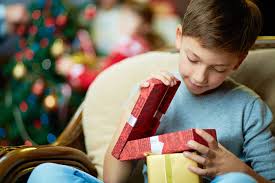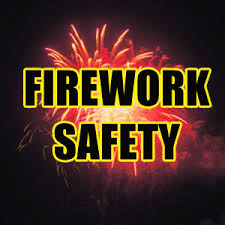 When out shopping for that perfect toy this holiday season, shoppers need to be toy savvy. Before making any purchases, consumers should check for recalls, research any known issues or potential hazards, and know what is age-appropriate.
When out shopping for that perfect toy this holiday season, shoppers need to be toy savvy. Before making any purchases, consumers should check for recalls, research any known issues or potential hazards, and know what is age-appropriate.
The good news is toy safety has improved greatly over the past ten years. This is due, in large part, to the joint efforts of the U.S. Consumer Product Safety Commission (CPSC) and the U.S. Customs and Border Protection (CBP). These agencies have joined forces to keep kids safe and stop dangerous toys from entering our country. In fact, over the past four years, CPSC and CBP stopped more than 8 million units of toys and children’s products due to safety hazards or the failure to meet federal safety standards. Stopped shipments have included lead, small parts, sharp points and labeling requirement violations. Toys were recalled for defects that could cause choking, mechanical hazards and fire hazards posing a threat of injury to a child.
Stopping the import of unsafe toys has drastically reduced the number of toy recalls, which are down from 172 in 2008 (with 19 involving high levels of lead) to 24 in 2016 (with only 1 involving a lead violation). But, while the number of toy recalls has declined, in 2015 the CPSC still reported 185,500 toy-related, emergency department-treated injuries and 11 deaths to children (15 and under). Riding toys, specifically non-motorized scooters, were the toy category associated with the most injuries and death.
Here are some toy safety tips to keep in mind this holiday season:
- Magnets – Children’s magnetic toys are covered by a strong safety standard that aims to prevent magnets from being swallowed. High-powered magnet sets that do not meet CPSC’s lifesaving standard are not permitted. However, these magnetic ‘toys’ are still sold and marketed to adults as desk-top toys and are known as Buckyballs, Magnetic Balls, Zen Magnets and NeoCubes. These rare-earth neodymium magnets stick together with such force that if they are ingested, they can bore holes in the stomach and intestines. Consumers should not purchase any high-powered magnetic toy for a person under the age of 14. If you have small children in the house, avoid having these types of toys altogether. If you suspect a child has swallowed a high-powered magnet, seek medical attention immediately.
- Button/Coin Batteries – Each year 2,800 children are treated in emergency rooms after swallowing button batteries. These batteries, which are found in television remotes, key fobs, children’s toys, watches and hearing aids, are tiny and shiny – making them very attractive to small children. Consumers are urged to keep button batteries and any item containing button batteries out of the reach of small children. If you suspect a child has swallowed a button/coin battery, do not induce vomiting and seek medical attention immediately.
- Balloons – Children can choke or suffocate on deflated or broken balloons. Keep deflated balloons away from children younger than 8 years old. Discard torn balloons immediately.
- Small balls and other toys with small parts – For children younger than age 3, avoid toys with small parts, which can cause choking.
- Scooters and other riding toys – Riding toys, skateboards and in-line skates go fast, and falls could be deadly. Helmets and safety gear should be worn properly at all times, and they should be sized to fit.
Once gifts are open:
- Keep toys appropriate for older children away from younger siblings.
- Battery charging should be supervised by adults. Chargers and adapters can pose thermal burn hazards to young children. Pay attention to instructions and warnings on battery chargers. Some chargers lack any mechanism to prevent overcharging.
Matt Casey and Matt Devoti are partners with Casey & Devoti, a St. Louis-based personal injury law firm. Together they have over forty years of experience handling all types of personal injury cases, including: automobile, truck and train accidents, medical malpractice, product and premises liability, elder care and sexual abuse, Workers’ Compensation, and wrongful death. If you or a loved one has been injured by the negligence of another, Matt and Matt are happy to meet with you for a free, no-obligation consultation. Learn more at www.caseydevoti.com.
Contact us anytime at (314) 421-0763 or info@caseydevoti.com.









